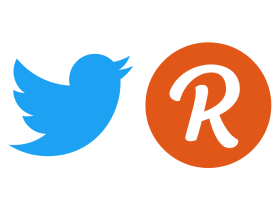Vivaldi has always been the browser that experiments with new features some of which include mouse gestures, split-screen tab tiling, and customizable keyboard shortcuts. On June 9, the Norwegian company announced the much-awaited upgrades – users will now be able to check their email, calendar, and RSS feeds all through the browser’s built-in tools.

Vivaldi 4.0 includes the Vivaldi Mail beta, which promises a more private alternative to web apps made by “Big Tech” companies. The company did not make a clear statement but it was pretty obvious what they meant by “Big Tech” companies. The company is offering something that power customers can also need: an all-in-one app for browsing, emailing, and making plans. There’s a strong chance that you might be using Google’s Gmail, Apple’s Mail, or Microsoft’s Outlook to handle your email and calendar today. Now that the company is handling all this in its own software, Vivaldi has become “a real alternative to big tech” said a blog post by the company.
The email client supports IMAP and POP accounts, so you can connect the vast majority of email services to it, and you can easily have messages open up in tabs rather than taking over the current window. TThe mail feature is arriving later than the corporation hoped. Vivaldi originally planned to release it in 2016 with Vivaldi 2.0. The software will graduate from beta status “when it’s ready,” Vivaldi Chief Executive Jon von Tetzchner said in an interview.

The calendar and RSS features are as expected and provide all the services as the other competitors with some cherry on the top. The RSS reader also supports YouTube channels, which could be handy for those who are worried about an algorithm deciding not to show a creator’s videos.

Not unlike Google’s Chrome, Vivaldi update is equipped with built-in translation. The browser will able to translate web pages (routinely, in case you need them) into 50 languages currently. However, the company says it’ll be expanding to aid 109 languages quickly. The translation feature will also be available for the Android app also.
For those of you who don’t want these additional features occupying space in your system, Vivaldi has made it optional and the user can choose between three layouts, a basic web browser, or one with a few power-user features, or the all-in-one experience with email, calendars, and RSS. All the features will still be available, even in the “Essentials” layout, but they won’t be taking up space in the interface.

“We hope it is not going to take too long, as we have already spent a lot of time getting this far, but we will gather feedback from the beta to find out the most important things to fix,” von Tetzchner said. The company also hopes to add email to its mobile app, he added. In recent months, Vivaldi also has added anti-tracking technology for better privacy, an ad-blocking option, some speed boosts, and a built-in tool to block dialog boxes about accepting cookies.



